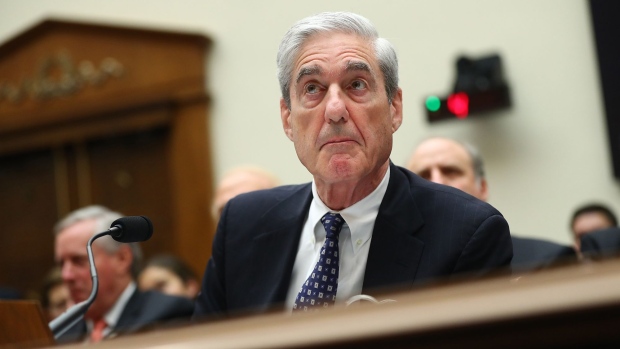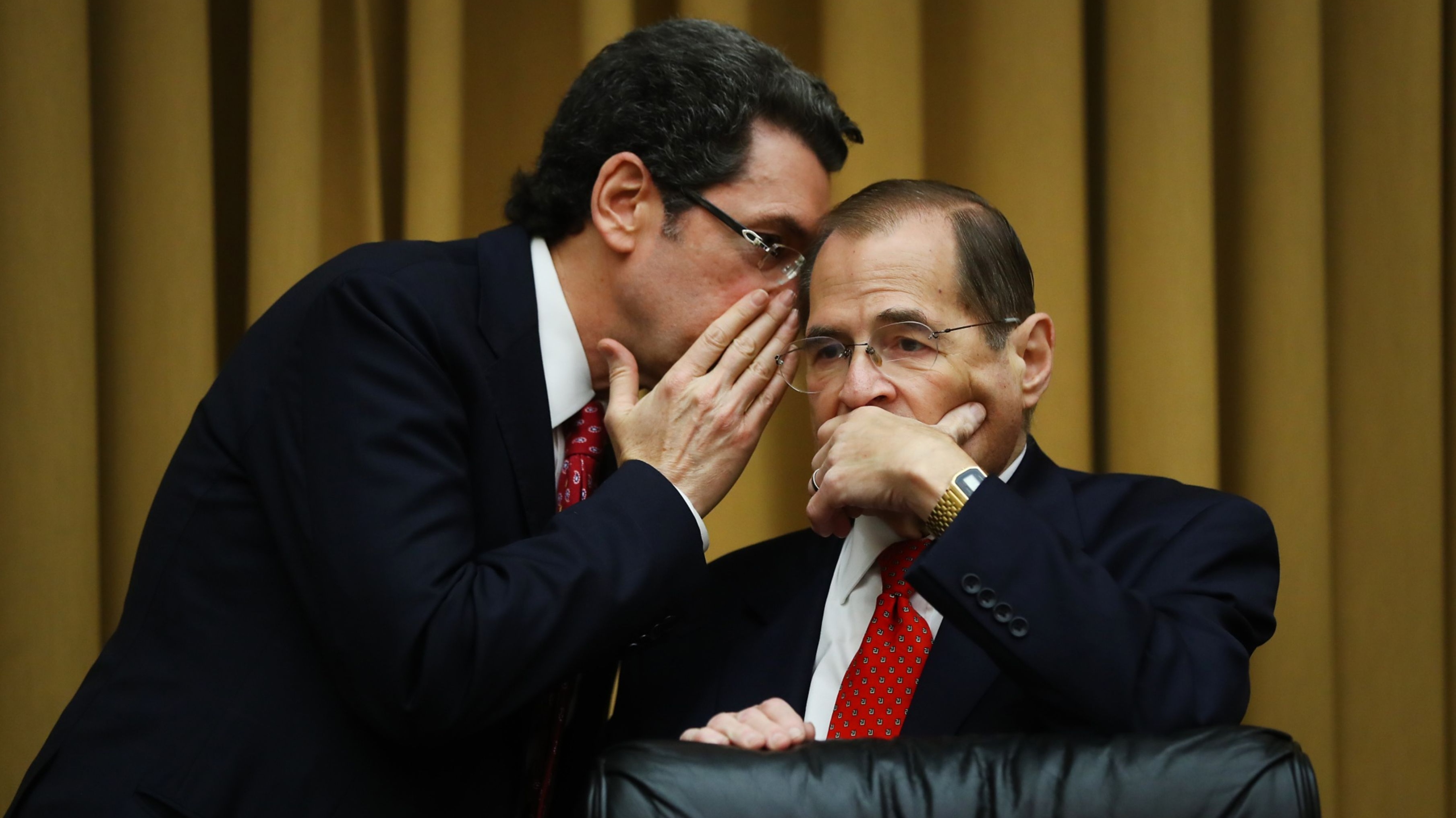Jul 24, 2019
Mueller resists Democratic push to reveal more from Trump probe
, Bloomberg News
Republicans take combative tone with Mueller
Robert Mueller made his reluctant, long-awaited appearance before Congress Wednesday, resisting pressure from Democrats who hoped he’d reveal additional information about his investigation of President Donald Trump.
“We decided we would not make a decision on whether the president committed a crime,” Mueller said in his opening statement. Under questioning, though, Mueller acknowledged it’s possible Trump could be prosecuted for obstruction of justice once he leaves office.
Constrained by Justice Department guidelines and his determination not to go beyond the findings in his 448-page final report, Mueller’s impact was further undermined by his performance. The 74-year-old former FBI director spoke haltingly at times, asking members to repeat their questions, stumbling over his wording and having difficulty finding passages in his report.
Republicans excoriated Mueller for his refusal to discuss early decisions in the Russia probe -- which they say was tainted by anti-Trump bias before he took over. And he said he wouldn’t address decisions made by Attorney General William Barr, who made his own finding that Trump didn’t obstruct justice.

“Any other person who acted this way would have been charged with crimes,” House Judiciary Committee Chairman Jerrold Nadler said of Trump in his opening statement. “And in this nation, not even the president is above the law. Director Mueller, we have a responsibility to address the evidence you have uncovered.”
In response to Nadler’s questions, Mueller confirmed a number of facts -- including that Trump refused his requests for an in-person interview and that he didn’t exonerate the president on obstruction of justice.
When Republican Ken Buck of Colorado asked if the president could be charged with obstruction after leaving office, Mueller said “yes.”
Republican Theme
Representative Doug Collins, the Judiciary panel’s top Republican, said in his opening statement that “Russia meddled in the 2016 election. The president did not conspire with Russians. Nothing we hear today will change those facts.”
On whether Trump obstructed Mueller’s probe, Collins said, “He did not shut down the investigation. The president knew he was innocent.”
Mueller didn’t defend himself or his investigation when Republican Representative John Ratcliffe of Texas, a former U.S. attorney, tore into him as having violated “every principle and the most sacred traditions” of prosecutors by including in his report “potential crimes that were not charged.”
But Mueller firmly responded “no way” when Representative Louie Gohmert of Texas asked if he knew that Peter Strzok had “animus” toward Trump when he put the FBI agent on his team. Mueller said “I acted swiftly” to remove Strzok once he learned that he and an FBI lawyer exchanged texts during the 2016 campaign saying Trump shouldn’t be allowed to become president.
“I can’t get into it,” Mueller said repeatedly when Representative Jim Jordan asked why the FBI didn’t charge an informant who the Ohio Republican said lied to the FBI. As a result, Jordan said, agents “spied on two American citizens associated with” Trump’s 2016 campaign.
Millions of Americans were expected to watch the event on live television. Even Trump -- who dismissed the hearings as a desperate move by Democrats because Mueller’s team found “no collusion, no obstruction” -- acknowledged this week that “probably, I’ll see a little” of it.

Representative Jerry Nadler, a Democrat from New York and chairman of the House Judiciary Committee, right, speaks with an aide during a hearing with Robert Mueller, former special counsel for the U.S. Department of Justice, in Washington, D.C., U.S., on Wednesday, July 24, 2019. (Andrew Harrer/Bloomberg)
Trump’s Tweets
The president betrayed deeper concern about the hearing in an early morning storm of tweets attacking Mueller and his team. He denounced Mueller as “highly conflicted” and said the Republican led a team of “Democrat Never Trumper lawyers.”
But as the hearing went on, Trump cited tweets from Fox News personalities that criticized Mueller’s performance and defended the president’s case that there was “no collusion, no obstruction.”
In the morning session, the Judiciary Committee focused on at least 10 instances that Mueller detailed of efforts to obstruct his 22-month investigation. Mueller said in the report that he couldn’t “exonerate” Trump on obstructing justice while invoking Justice Department regulations against charging a president while in office.
In the afternoon, the Intelligence Committee planned to zero in on multiple contacts between people involved in Trump’s 2016 campaign and Russians who interfered in the presidential election. Mueller said there wasn’t sufficient evidence that the campaign conspired with Russia.
The day’s sessions unfolded in a setting with some history: the House Judiciary Committee’s main hearing room, where impeachment proceedings unfolded for Presidents Richard Nixon in 1974 and Bill Clinton in 1998.
Still, even beforehand some Democrats sought to lower expectations that Mueller’s appearance would have much influence on public opinion.
“People are pretty dug-in on not just Trump and Russia, but just dug-in on this president," Representative Adam Schiff, the Intelligence Committee’s chairman, said Tuesday.
--With assistance from Steven T. Dennis.








